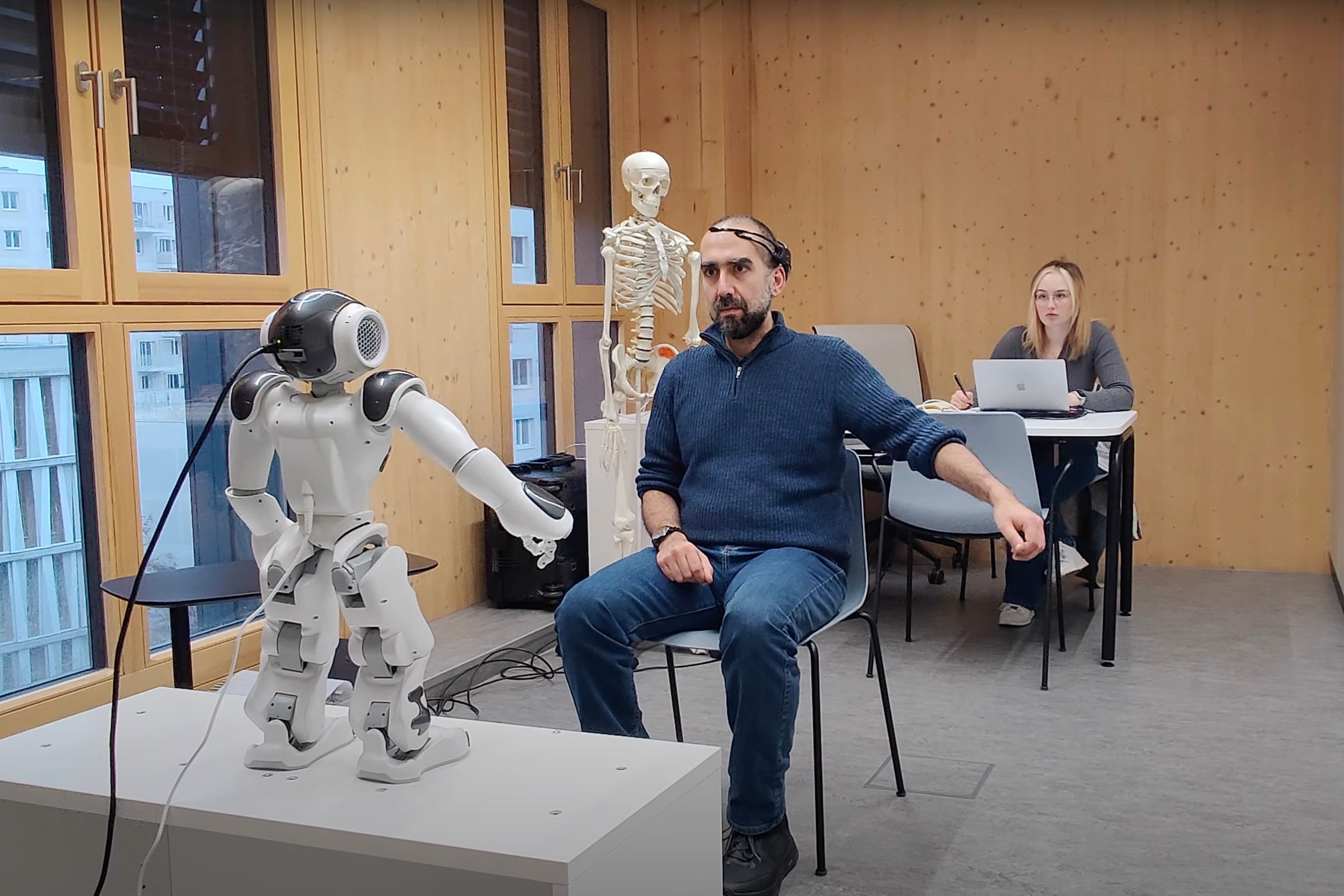Robot ‘coach’ used to aid recovery of stroke survivors
A new robot has been developed to encourage stroke survivors to complete exercises prescribed to aid their rehabilitation.

Your support helps us to tell the story
From reproductive rights to climate change to Big Tech, The Independent is on the ground when the story is developing. Whether it's investigating the financials of Elon Musk's pro-Trump PAC or producing our latest documentary, 'The A Word', which shines a light on the American women fighting for reproductive rights, we know how important it is to parse out the facts from the messaging.
At such a critical moment in US history, we need reporters on the ground. Your donation allows us to keep sending journalists to speak to both sides of the story.
The Independent is trusted by Americans across the entire political spectrum. And unlike many other quality news outlets, we choose not to lock Americans out of our reporting and analysis with paywalls. We believe quality journalism should be available to everyone, paid for by those who can afford it.
Your support makes all the difference.Robot “coaches” could one day be used to help the recovery of people who have lost the full use of their limbs through strokes or brain injuries, researchers have suggested.
It is estimated around 80% of patients who survive strokes and brain injuries are left with some impairment which limits the movement of their arms.
Patients need to do repetitive exercise to improve their function, but it is believed only 31% complete their exercises due to factors such as forgetfulness or lack of motivation.
To aid their recovery, a new robot has been developed by researchers that can anticipate how the user wishes to move during their prescribed routine by reading their brain activity.
The robot then encourages the user to complete their exercises by mimicking their intended movements and offering real-time verbal motivation and feedback.
We envision a future where patients have access to personalised robotic coaches that support clinicians and experts to deliver even more successful rehabilitation journeys
The Vitalise project was funded by the EU Horizon 2020 programme, led by the National Robotarium’s Human Robot Interaction (HRI) team and developed in partnership with the AIT Austrian Institute of Technology.
The team successfully trialled the system during a three-month study in Austria working with 16 stroke and brain injury survivors and six therapists.
They are now hoping to conduct further trials in Scotland with the ultimate aim of having the system adopted by NHS Scotland.
Lynne Baillie, professor of computer science at Heriot-Watt University and academic lead at the National Robotarium for human-robot interaction, explained: “We know that sustained, repetitive exercises are crucial for recovery after a stroke or brain injury.
“However, without supervision it can be challenging for survivors to stay motivated.
“We envision a future where patients have access to personalised robotic coaches that support clinicians and experts to deliver even more successful rehabilitation journeys.
“Our research shows the incredible potential for these technologies to understand users’ needs and empower them to achieve recovery goals.
It was important for us to examine the user experience as well as the feasibility of the approach for both people with hemiparesis and physiotherapists
“At the National Robotarium, our ambition is to develop automated technologies that assist and empower people, including those managing health conditions, to remain independent in their homes for longer.
“This successful pilot represents an important milestone toward that vision, demonstrating how we can thoughtfully design robotics to deliver better health outcomes for vulnerable groups like stroke and brain injury survivors.”
Markus Garschall, a scientist at the Austrian Institute of Technology Centre for Technology Experience, said: “Especially in the field of eHealth, co-design methods are very helpful and work well. It was important for us to examine the user experience as well as the feasibility of the approach for both people with hemiparesis and physiotherapists.
“At the same time, the transnational collaboration with scientists from Scotland was also very inspiring; we need much more European cooperation and exchange, especially in the healthcare sector.”
The pilot study was funded under the European Union’s Horizon 2020 Research and Innovation Programme as part of the larger Vitalise project for advancing rehabilitation infrastructure.